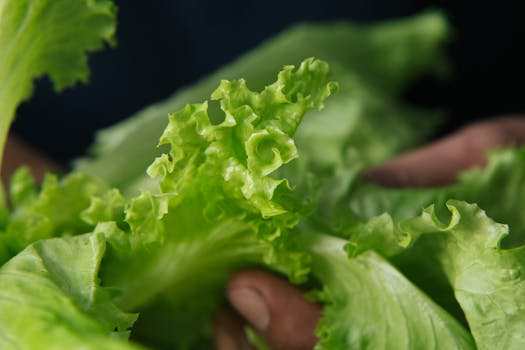Cooking for Sustainability: Eco-Friendly Kitchen Habits
Cooking is not just about creating delicious meals, it also has an impact on the environment. With the rising concern for sustainability, it is important to consider our everyday habits in the kitchen. From the ingredients we use to the food storage methods, small changes in our kitchen habits can make a big difference in reducing our carbon footprint. With that in mind, let’s explore some eco-friendly kitchen habits that can help us create a more sustainable world.
The Importance of Cooking for Sustainability
The concept of sustainability focuses on meeting the needs of the present without compromising the ability of future generations to meet their own needs. In other words, it’s about finding a balance between economic growth, social development, and environmental protection. When it comes to cooking, the ingredients we choose, the appliances we use, and the waste we produce can have a significant impact on our planet. By adopting eco-friendly kitchen habits, we can reduce our environmental impact and contribute to a more sustainable future.
Choose Locally Sourced Ingredients
One of the best ways to cook sustainably is to use locally sourced ingredients. Not only are these ingredients fresher and full of flavor, but they also help reduce the carbon footprint associated with transportation. When we buy produce from local farmers, we support the local economy and reduce the need for long-distance transportation, which in turn reduces greenhouse gas emissions. So, the next time you go grocery shopping, look for locally grown fruits, vegetables, and meats.
Opt for Organic and Seasonal Ingredients
In addition to choosing locally sourced ingredients, it’s important to consider the type of ingredients we use. Organic produce and meats are grown without the use of synthetic pesticides and fertilizers, making them better for the environment and our health. Furthermore, choosing seasonal ingredients means that the produce is harvested at its peak, making it more nutritious and better for the environment. Seasonal produce also tends to be more affordable and supports local farmers.
Reduce Food Waste
Did you know that one-third of all food produced in the world goes to waste? Food waste is not only a major contributor to greenhouse gas emissions, but it also wastes precious resources such as water, land, and energy. To reduce food waste, plan your meals and buy only what you need. Properly store your leftovers and use them in creative ways to minimize food waste. You can also compost your food scraps to create nutrient-rich fertilizer for your garden.
Eco-Friendly Cooking Methods
The way we cook also has an impact on the environment. Here are some eco-friendly cooking methods that can help reduce energy consumption and minimize our carbon footprint.
Use Your Stovetop Efficiently
When using your stovetop, make sure to use the right size pot or pan for the burner. This will prevent excess heat from escaping and save energy. Also, use lids while cooking to trap heat and reduce cooking time. When boiling water, use just enough water to cover the food to avoid wasting energy and water.
Invest in Energy-Efficient Appliances
Modern kitchen appliances are designed to be energy-efficient, meaning they use less energy while still delivering the same performance. When purchasing new appliances, look for energy-efficient options and look for the Energy Star label. This indicates that the appliance meets strict energy efficiency guidelines set by the EPA.
Consider Alternative Cooking Methods
We tend to rely heavily on our ovens and stovetops for cooking, but there are other options that can save energy and reduce our carbon footprint. Consider using a slow cooker, pressure cooker, or air fryer for certain dishes. These appliances use less energy and can cook food in a more efficient manner.
Eco-Friendly Kitchen Clean-Up
Cleaning up after a meal is an important part of the cooking process, but it often involves harsh chemicals and single-use products. Here are some eco-friendly alternatives for a more sustainable kitchen clean-up.
Switch to Natural Cleaning Products
Many household cleaning products contain harsh chemicals that can harm the environment. Consider switching to natural cleaning products such as vinegar and baking soda, which are safe and effective alternatives. You can also look for eco-friendly cleaning products that are made from biodegradable materials and do not contain harmful chemicals.
Invest in Reusable Kitchen Products
Single-use products, such as paper towels and plastic wrap, contribute to a lot of waste. Instead, opt for reusable alternatives such as cloth napkins, beeswax wrap, or silicone food bags. These products may require a small investment up front, but they can save you money in the long run while also reducing your environmental impact.
Recycle and Compost
Proper waste management is crucial for a sustainable kitchen. Make sure to recycle any items that can be recycled, such as glass, plastic, and cans. You can also compost your food scraps to create nutrient-rich soil for your garden. This helps reduce landfill waste and helps you create your own natural fertilizer.
In Conclusion
By making small changes in our daily cooking habits, we can make a big impact on the environment. Choosing locally sourced, organic, and seasonal ingredients, reducing food waste, and using energy-efficient cooking methods are just some of the ways we can cook for sustainability. Let’s all do our part and create a more eco-friendly kitchen to help build a more sustainable future for generations to come.











